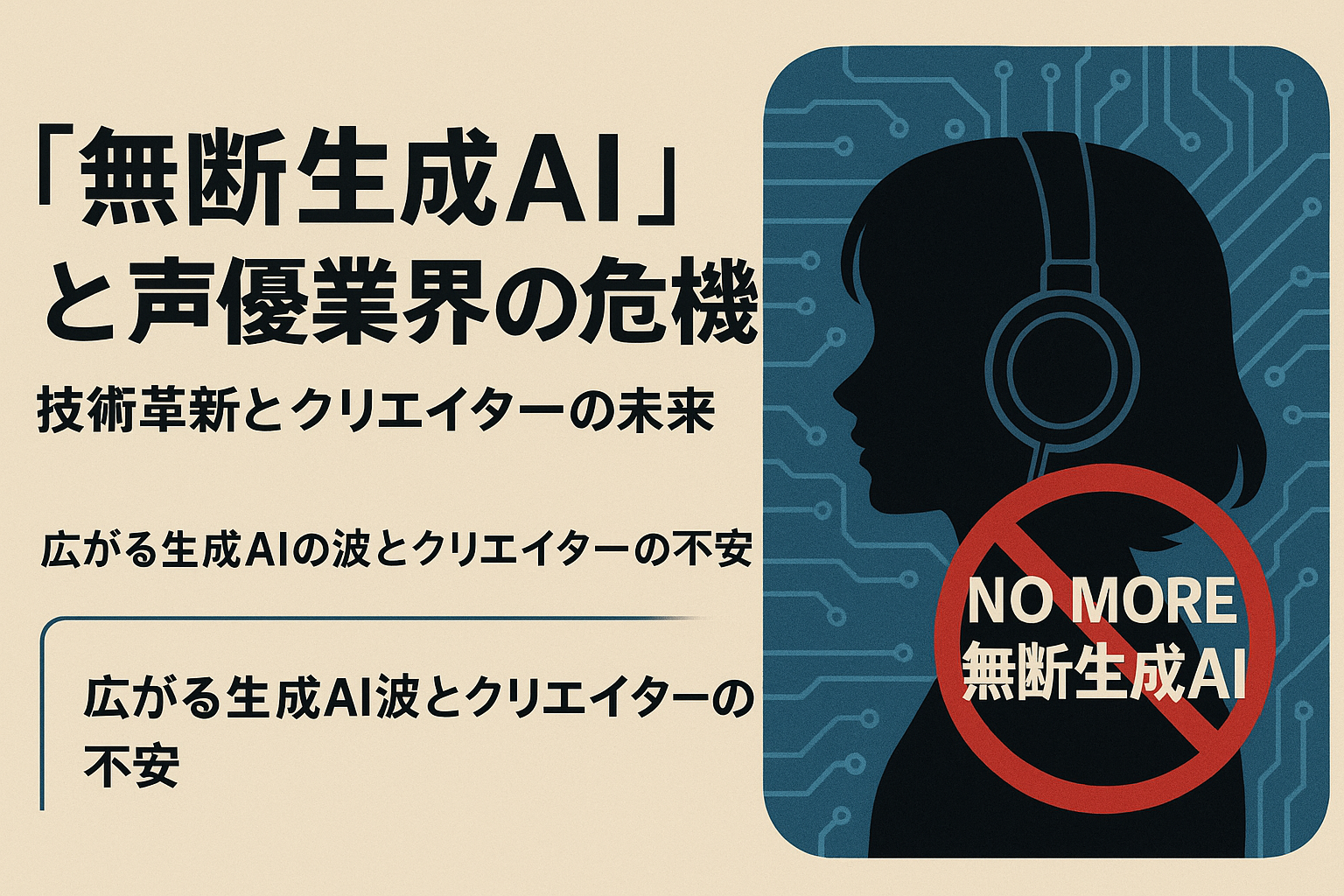The Expanding Wave of Generative AI and the Anxieties of Creators
In recent years, generative AI has rapidly spread and come to be described as the “next infrastructure” capable of transforming the way society operates. Its applications are wide-ranging, from text and image generation to speech synthesis, and governments are actively promoting its use.
However, behind this bright spotlight lurk serious issues concerning copyright, portrait rights, and the very survival of creativity as a profession. In the voice acting industry in particular, there have already been cases where the irreplaceable asset of “voice” has been used without permission, turning concerns into a pressing reality.
“NO MORE Unauthorized Generative AI” — A Self-Defense Movement by Voice Actors
Many industry figures, including voice actress Megumi Ogata, have voiced alarm. Voices are being collected without consent, and AI-trained synthetic voices are already being distributed online. Some videos even go so far as to “fabricate” obscene lines or words never spoken by the actual actors.
In response, a group of volunteer voice actors issued a statement titled “NO MORE Unauthorized Generative AI,” sounding the alarm to society. While Japan still lags in legal frameworks, Korea and the United States are already moving forward with rule-making — a stark contrast that highlights Japan’s delay.
Can We Protect the “Eggs” of the Next Generation?
Ogata emphasizes the danger of losing opportunities for newcomers to grow. In voice acting, this includes mob roles or small narration jobs; in illustration, detailed cuts or background work. Such “small jobs” are essential stepping-stones for creators to develop.
But if the notion that “AI can do it cheaply” becomes widespread, these opportunities will vanish, depriving young talent of experience. The result could be stagnation in talent development across entire industries, and in the long run, a decline in culture itself.
Drawing the Line Between Technology and Human Expression
There is no denying that generative AI is a “useful tool.” It may be effective for monotone narration or automating repetitive tasks. Yet in expressive arts such as acting, music, and painting, human expression cannot simply be replaced.
The real question is: where do we draw the line? Who will create the rules, and who will enforce them?
A Challenge for Japanese Society
Globally, discussions on AI regulation are accelerating, but Japan remains slow to establish clear laws. At this pace, the country risks a reactive “after-the-fact” approach, scrambling to act only once damage is evident.
While generative AI brings benefits to society, it also shakes the very foundations of culture and expression. Both aspects must be recognized, and urgent debate and rule-making are needed.
Conclusion
The spread of generative AI is an unstoppable trend. Yet if society dismisses human creativity merely because AI is “convenient” or “cost-saving,” culture itself will wither away. The alarm raised by the voice acting industry is not only an issue for creators — it is a wake-up call for society as a whole.

